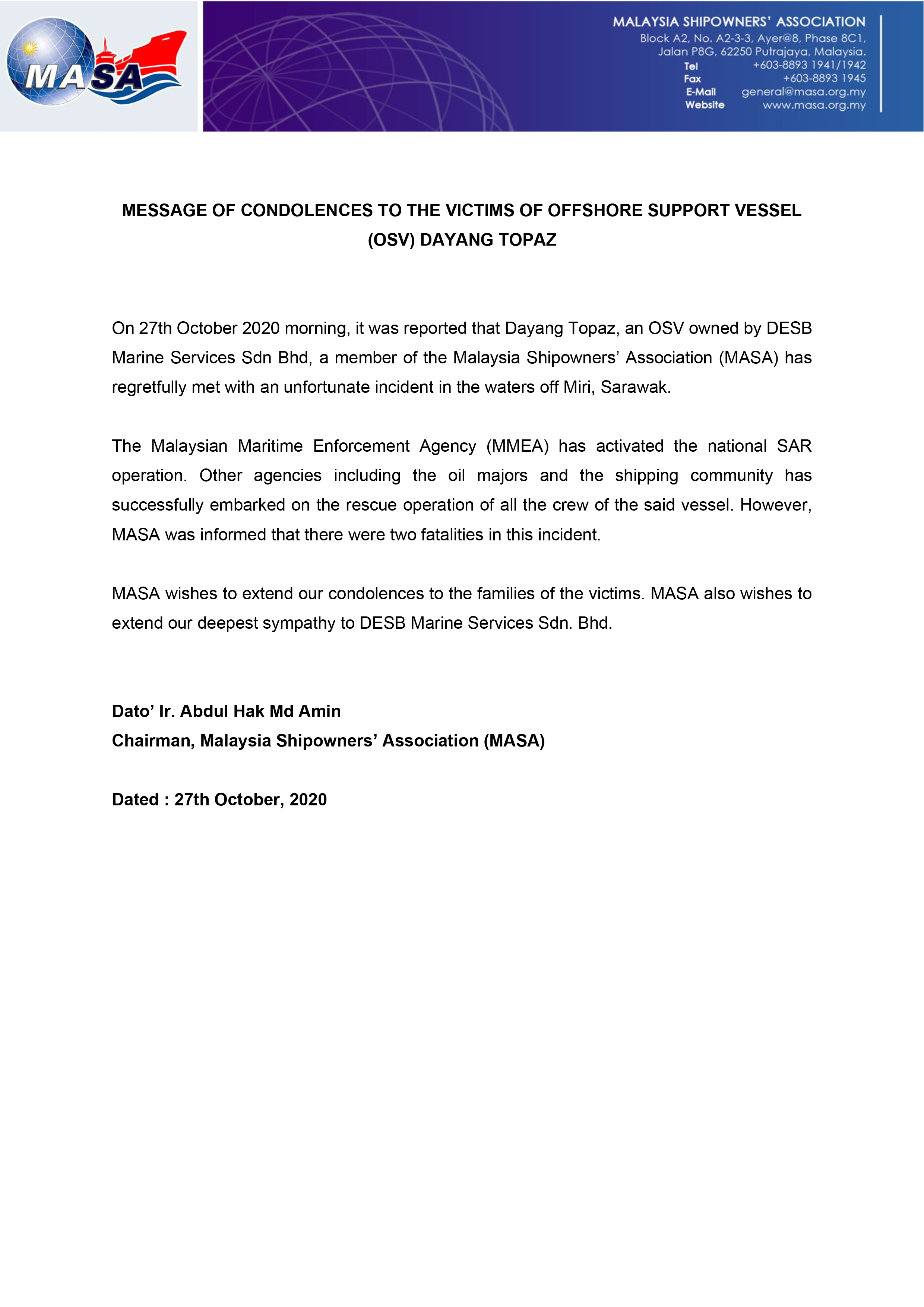SIBU: The Malaysia Shipowners’ Association (Masa) is seeking government intervention for the sustainability of the country’s shipping industry, which is experiencing financial difficulties due to the Covid-19 pandemic and premature termination of contracts by oil majors due to low prices.
Masa chairman Datuk Abdul Hak Md Amin said he hoped Budget 2021 would assist the affected industries and companies.
“Malaysia’s shipping industry is a major contributor towards Malaysia’s economy, growth, and trade as 90 per cent of Malaysia’s trade is from sea. This industry contributes about 16 per cent of the national GDP (gross domestic product) in 2017. It has also provided about 70,000 jobs directly and indirectly in domestic human capital.
“From seafarers to those in the supporting industries like ship repairs, shipbuilders, ports, shipping agencies, cargo brokers/surveyors, logistics players, equipment suppliers etc, and indirect industries like hotels, airlines, universities, etc ,” he said in a statement.
In view of the prevailing conditions surrounding the shipping industry, Abdul Hak said sufficient financing and facilities must be put in place.
“The focus should be for the government to provide financial assistance to the existing shipowners that are struggling for survival following the recent economic downturn and slowdown in the shipping industry, eg extend the loan moratorium period for shipping companies for six months ending April 2021, zero interest for one year for current loans, using the shipping fund announced last budget to subsidise existing shipping loans, more industry friendly and less stringent requirements by the banks, tax rebate or grants, and granting moratorium automatically to the shipping industry irrespective of their revenue,” he said.
According to Abdul Hak, the government should help provide working capital by Danajamin to support financially distressed Malaysian shipowners affected by Covid-19 and consider extending the availability of the guarantee scheme up until 2021.
He said although 100 per cent tax exemption was granted to Malaysian shipping companies under Section 54A of the Income Tax Act 1967 for a period of three years until 2023, such a short period would not be able to help shipping companies plan and invest in new assets.
Abdul Hak said the exemption should also include ferries, barges, tugboats and supply vessels, crew boats, and lighter dredger fishing boats or other similar vessels.
“In order to encourage and promote the competitiveness of the shipping sector, the tax exemption regime should be permanent and to be extended to all vessels under the Section 54A of Income Tax Act 1967 and shall be defined as ‘Malaysian Ship’,” he said.
He also called for the reinstatement of Cabotage Policy between Peninsular Malaysia, Sabah, Sarawak, and the Federal Territory of Labuan as he claimed the current exemption has made Malaysian ships uncompetitive and vulnerable in maintaining their existing fleet or tonnage.
“This will consequently lead to the negative rise in Balance of Payment (BOP) on shipping freight. Using foreign tonnage for domestic trade does not provide any revenue for the government except a meagre fee to obtain the DSL (domestic shipping licence).
“The government should consider reinstating and strengthening the Cabotage Policy as it is a universal policy being practised around the world and vital for a country’s shipping industry, not only for commercial reasons, but importantly, for security matters. A sizeable domestic merchant fleet can be quickly used for national defence or as transporters during emergencies or conflicts, especially since our country is separated by the South China Sea,” he said.
For oil tankers, Abdul Hak said they were the supply chain of two National Key Economic Areas – palm oil and rubber, as well as oil, gas, and energy sectors.
He called on the government to introduce a policy to encourage resident Malaysian companies to export using Malaysia flagged vessels to reduce the BOP deficit and encourage GLCs to buy using Free on Board and sell using Cost, Insurance, and Freight.
— Source from BorneoPost

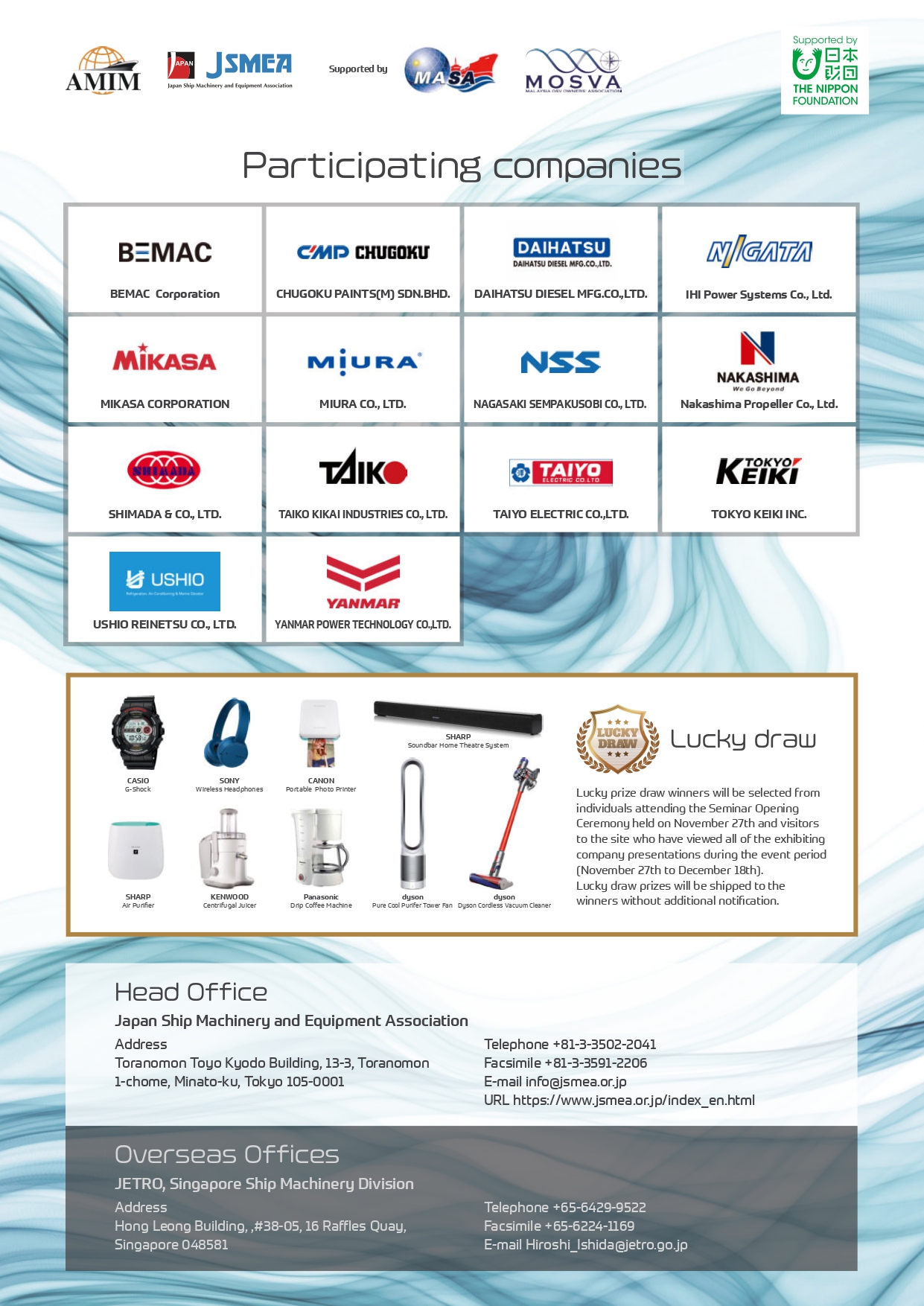

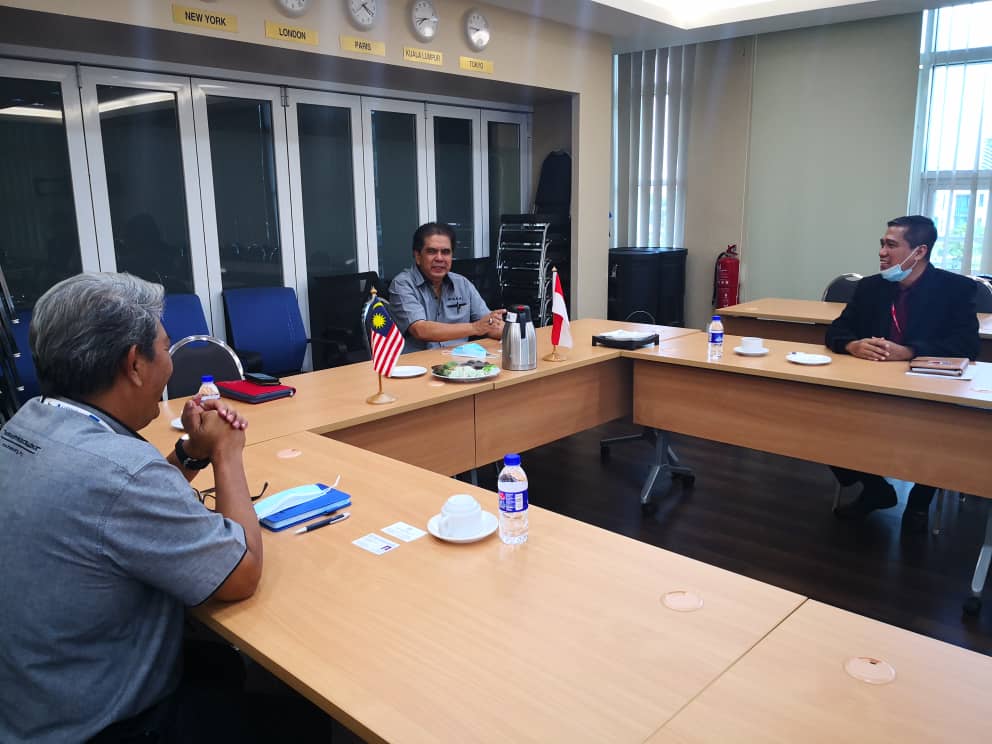
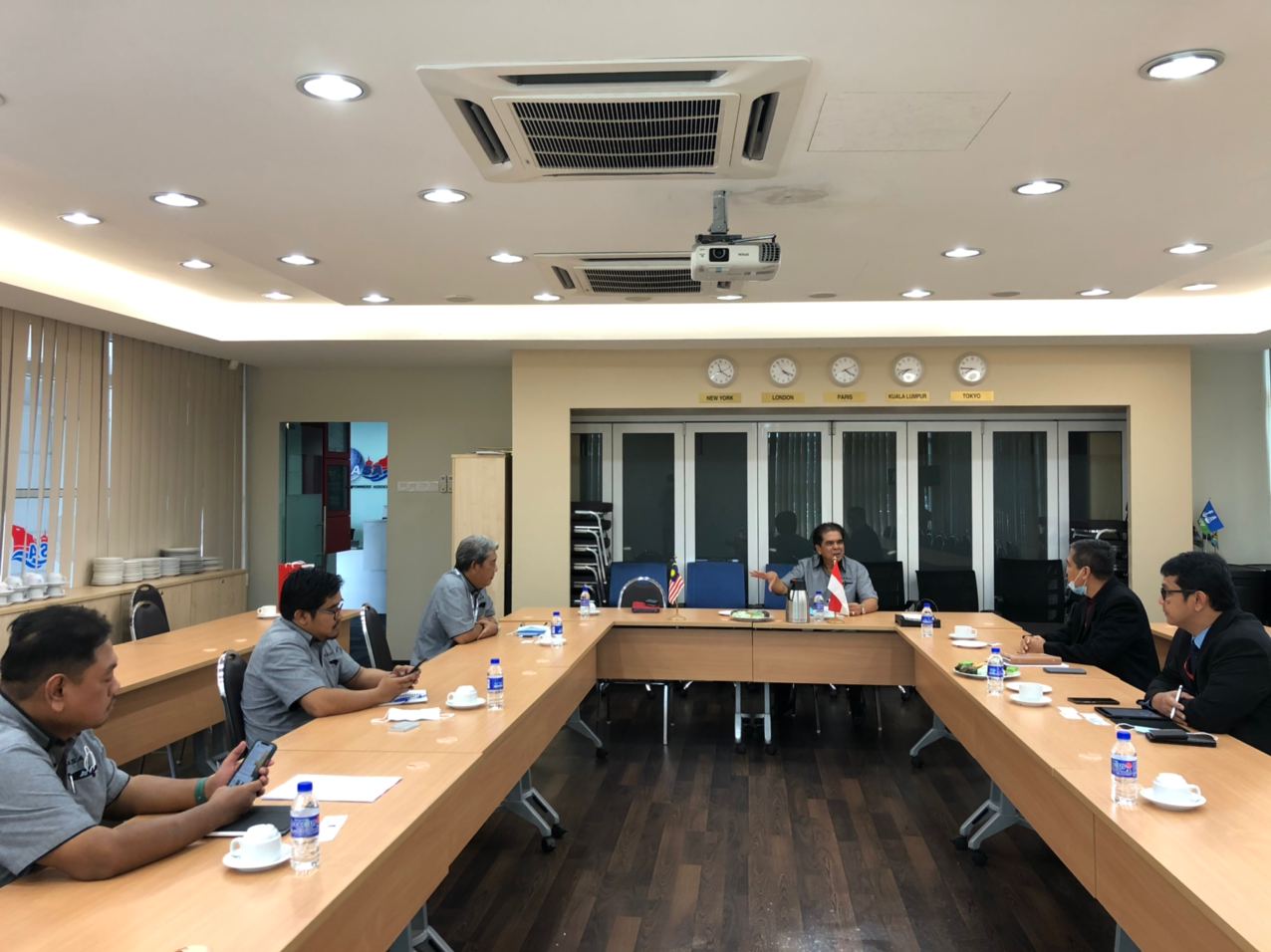
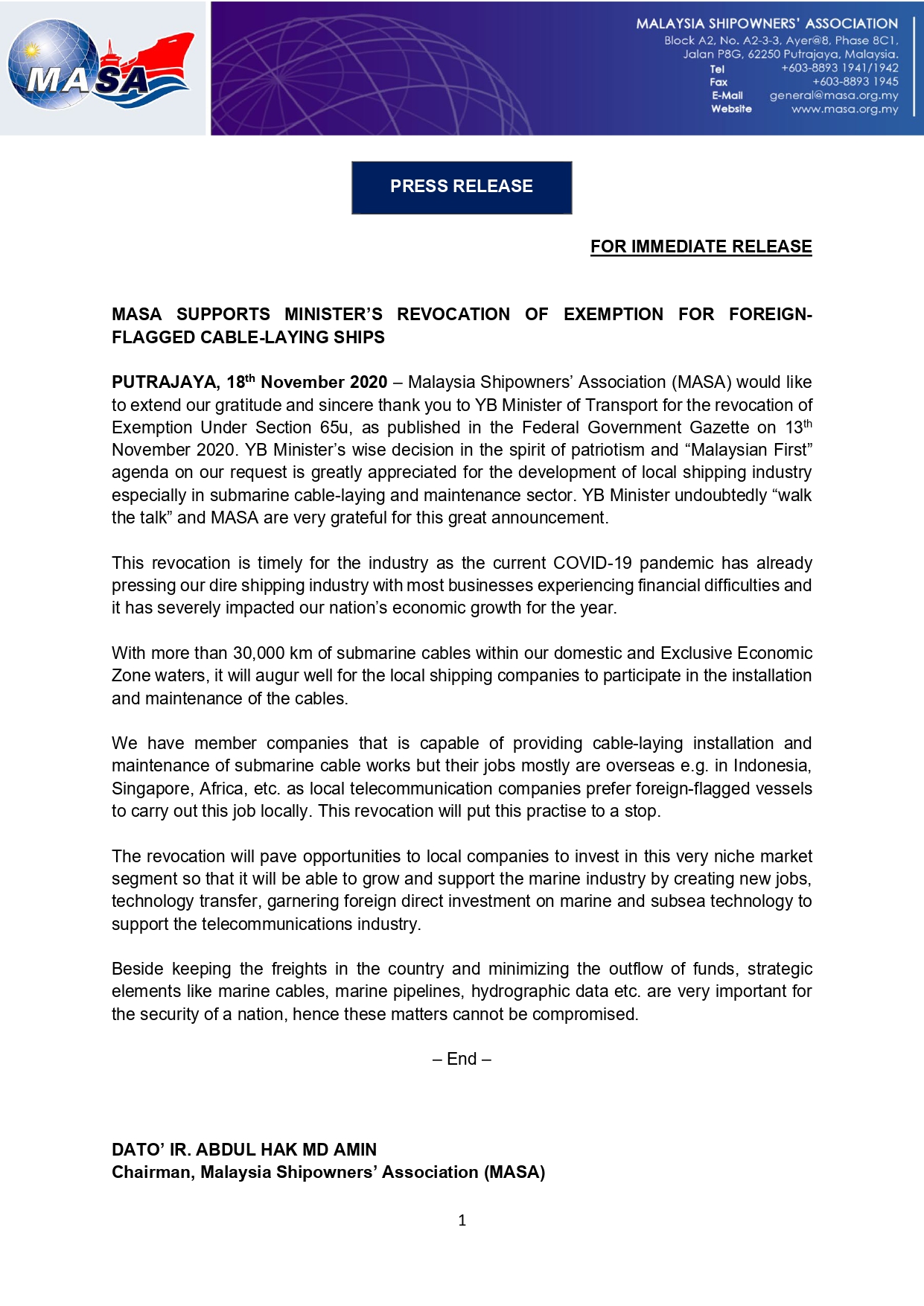
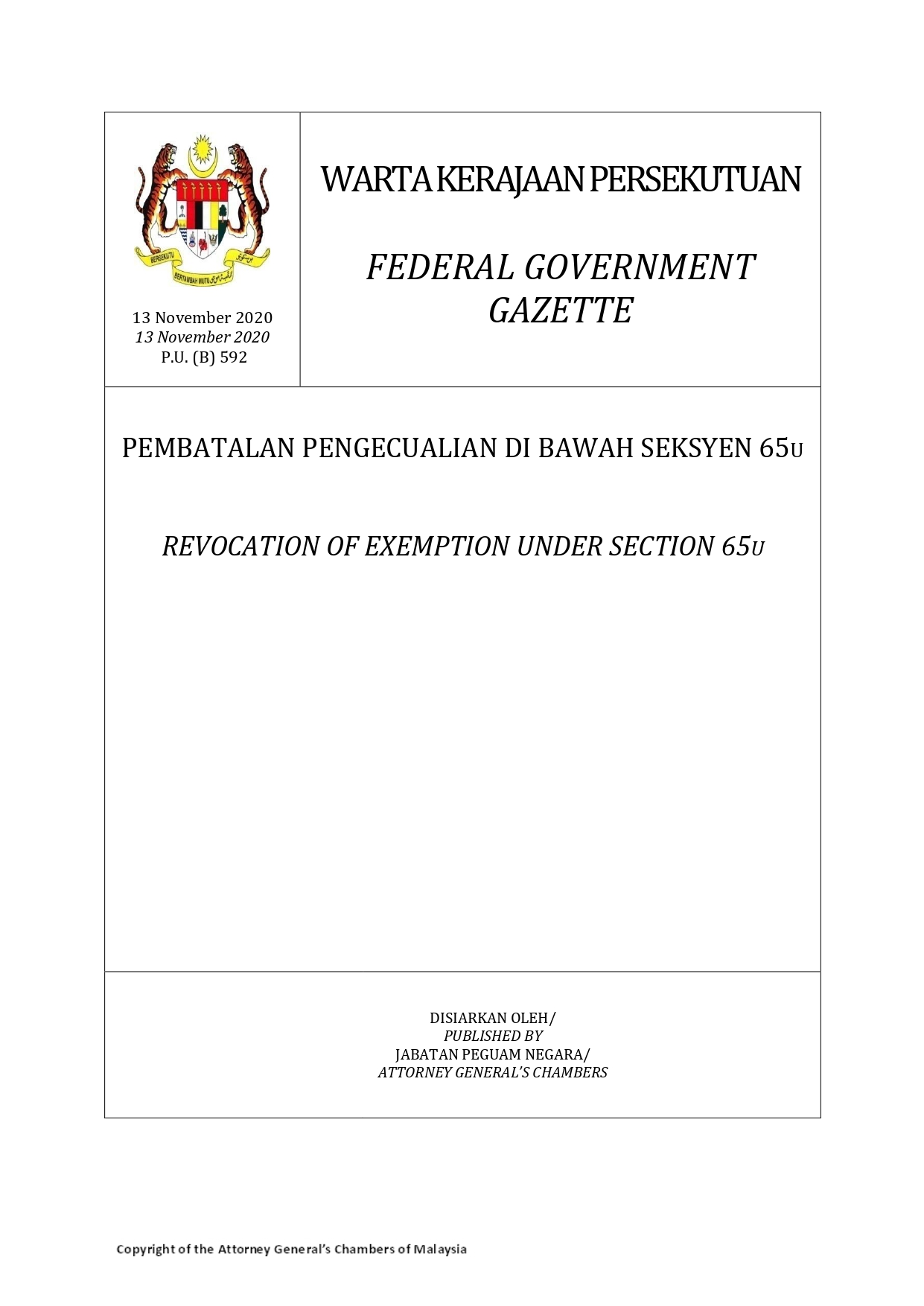
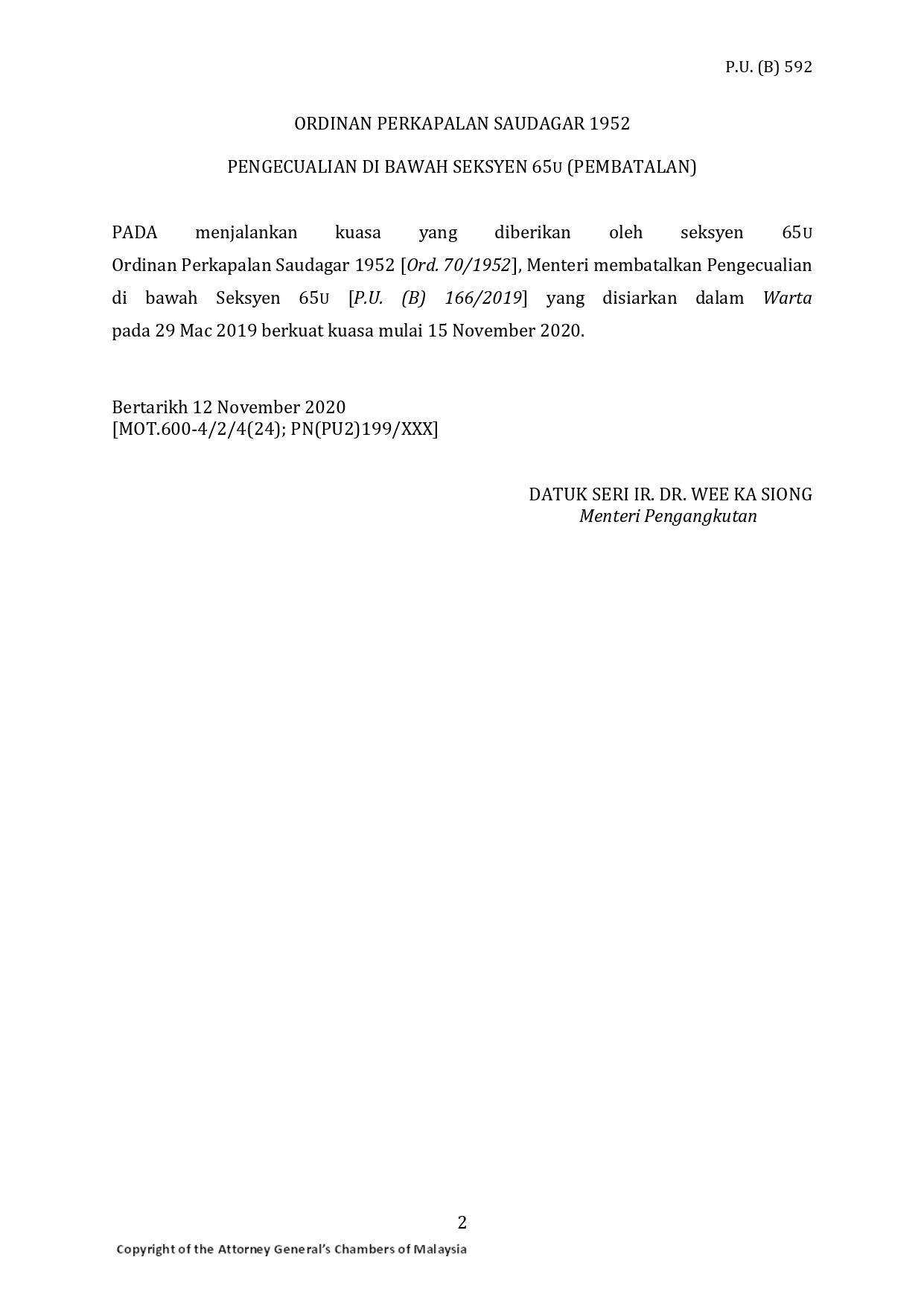
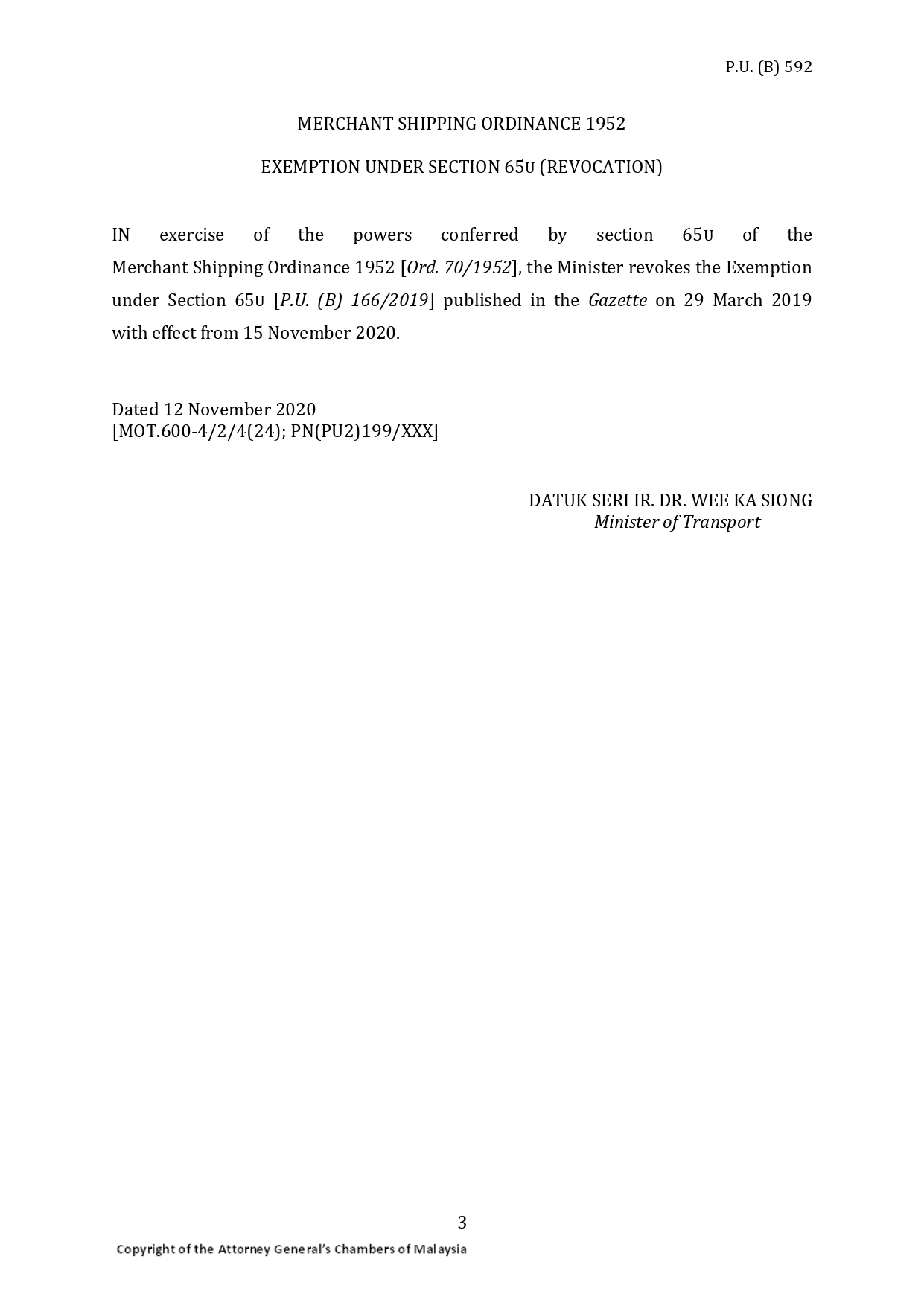
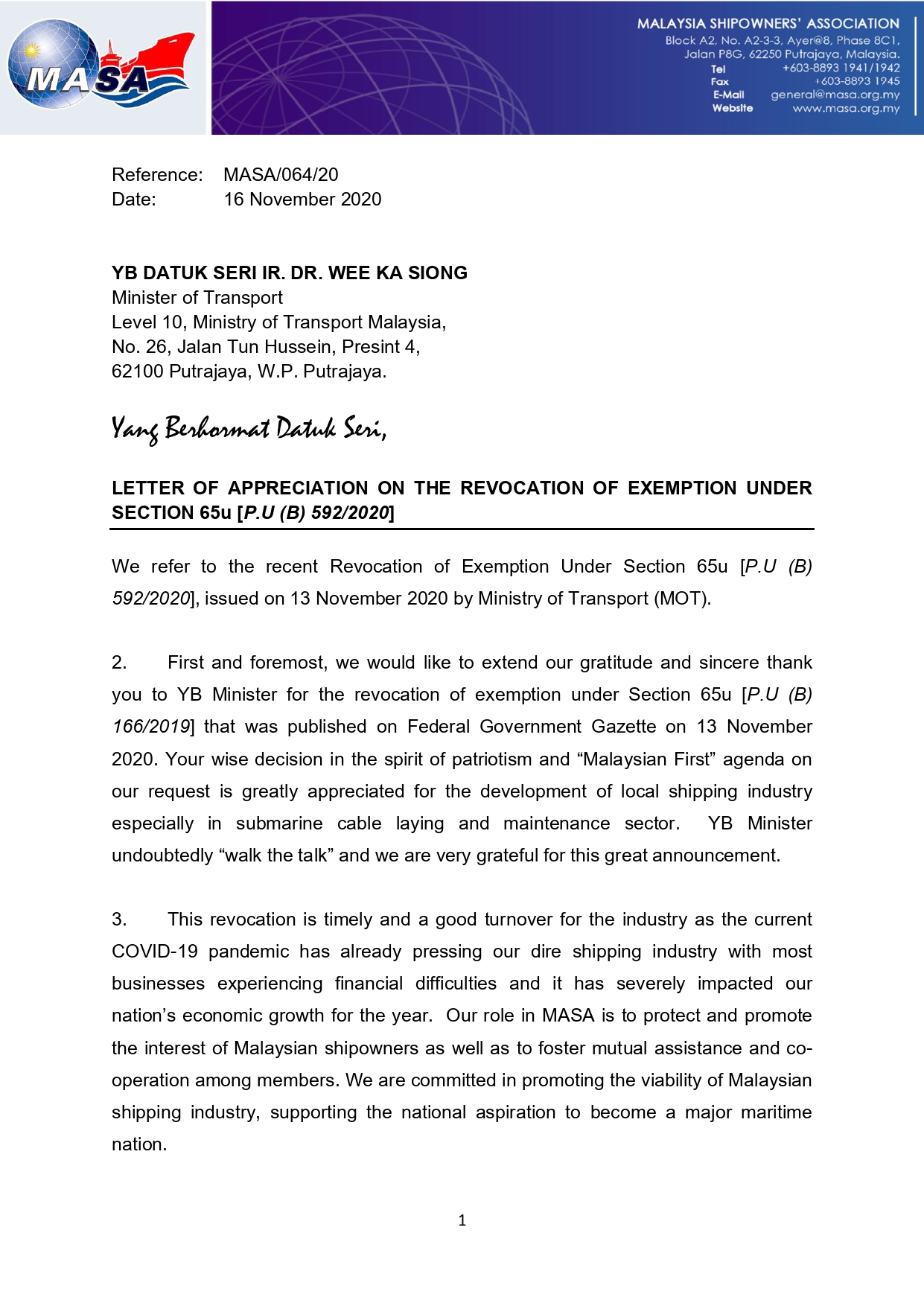
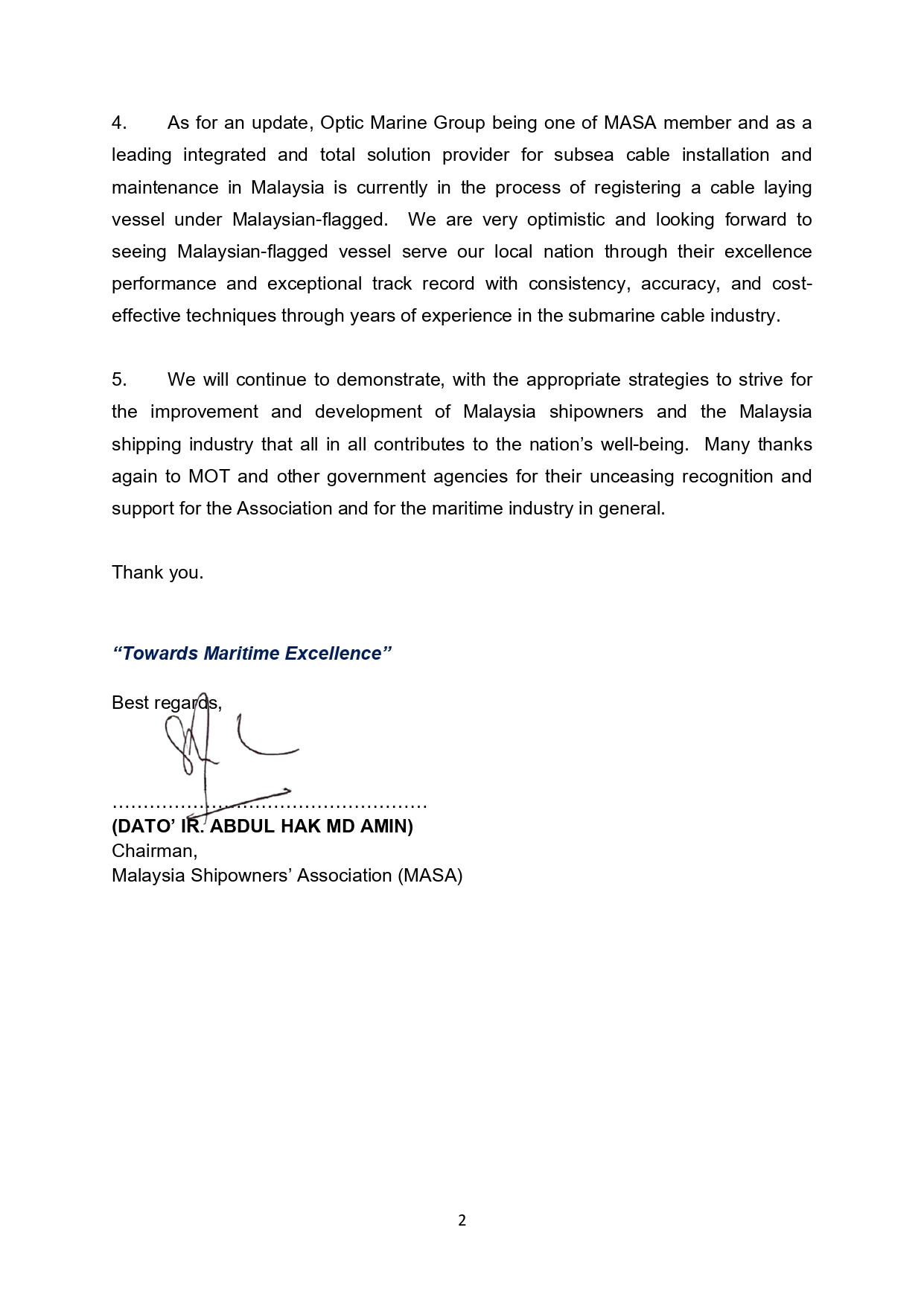

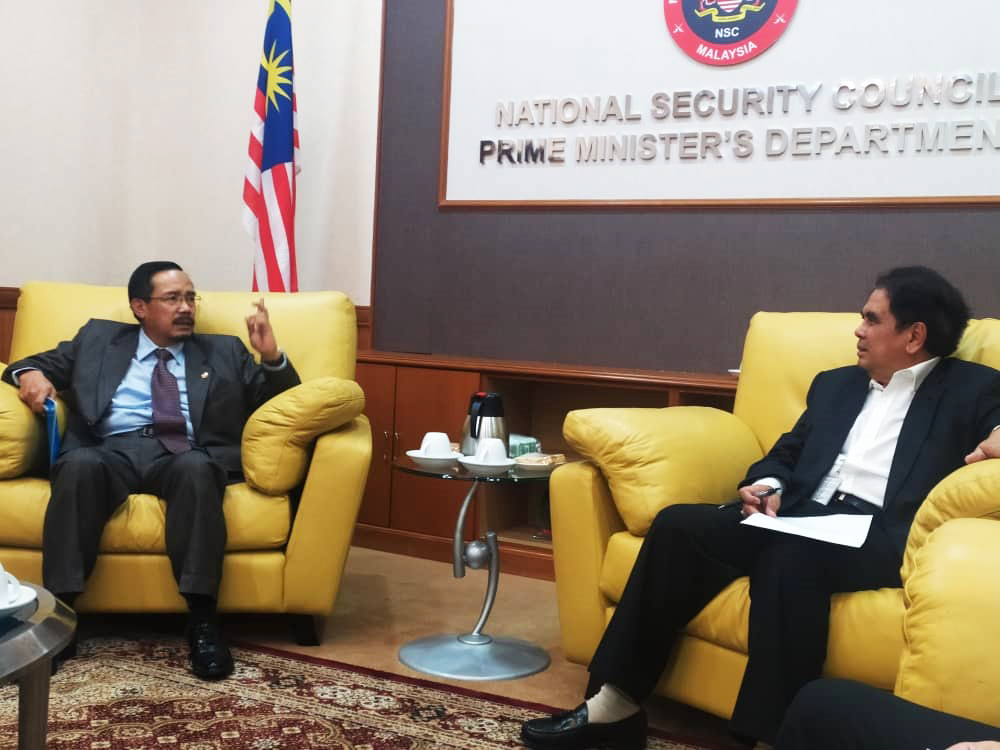
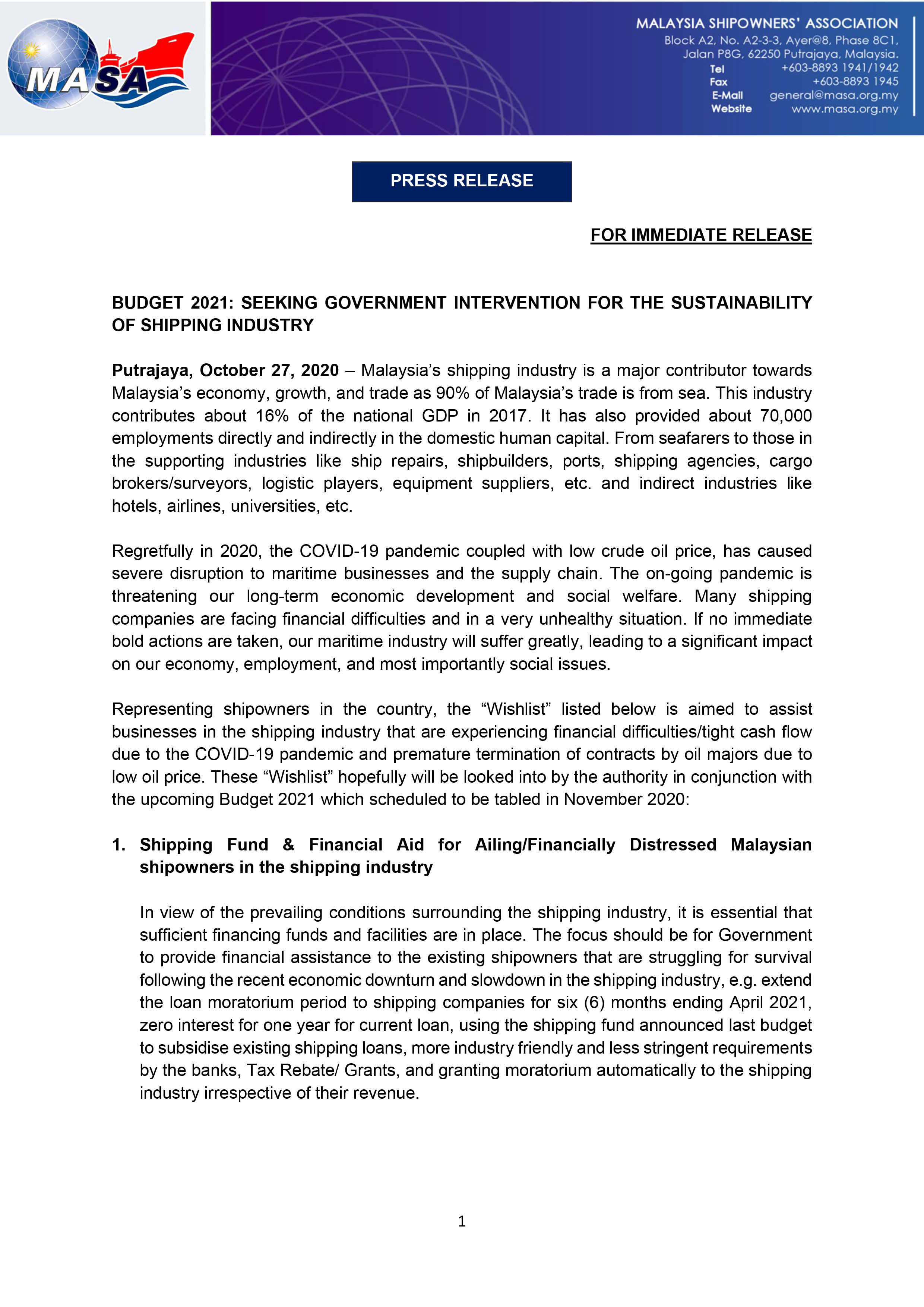
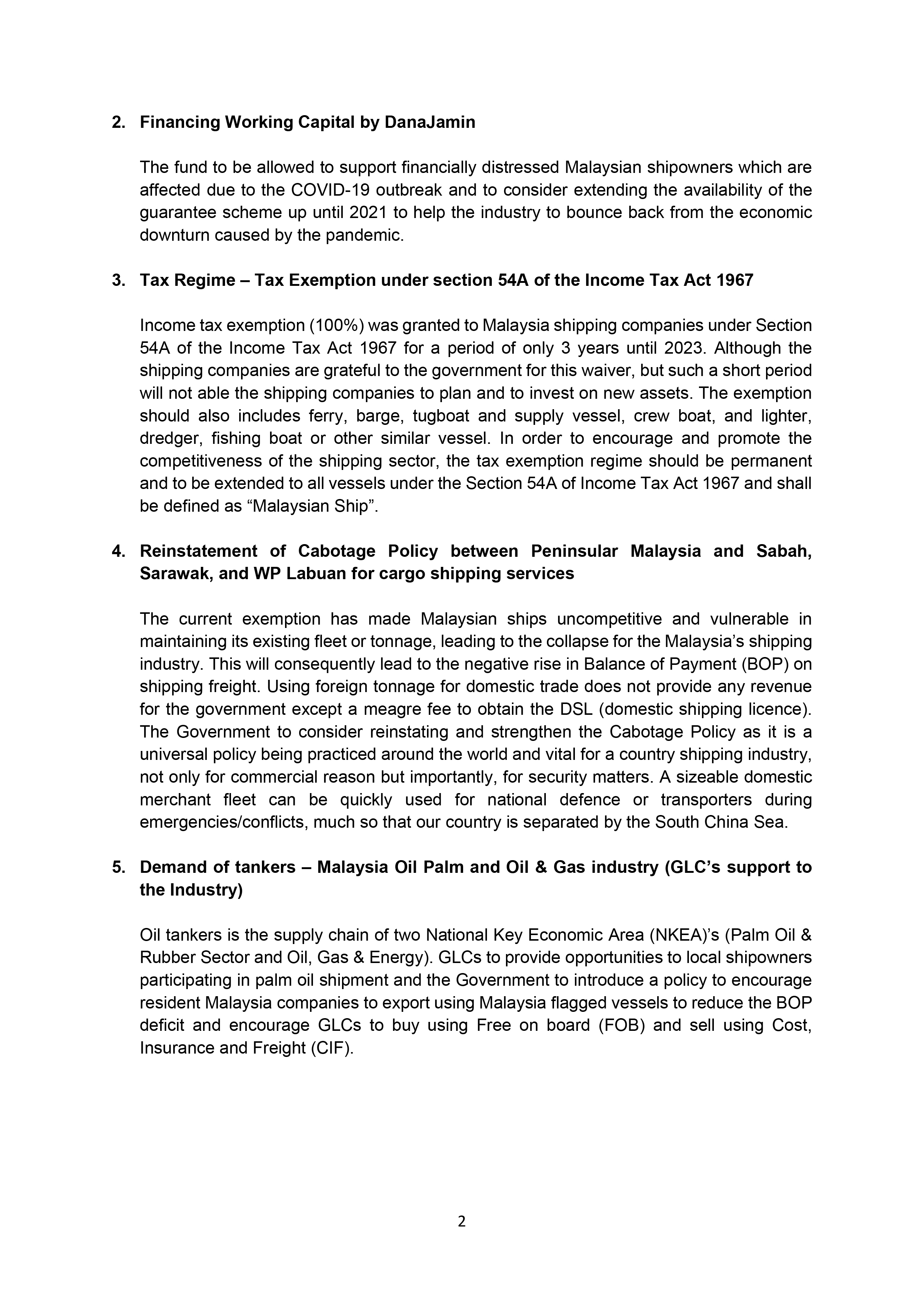 Link
Link 